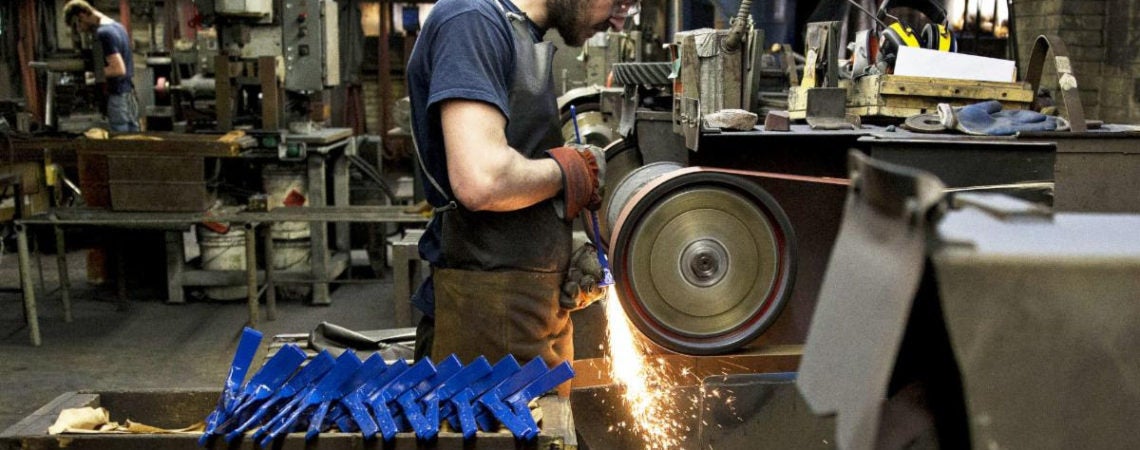The Trump administration made headlines when it increased trade barriers in 2018 and 2019. Those tariffs—the largest in over 75 years—are designed to help America’s ailing manufacturing sector. The U.S. lost 5.8 million manufacturing jobs between 2000 and 2010.1 And, since the Great Recession, only 20 percent of those losses have been recovered. The White House argues that trade protection will help reboot American production and send workers back to the factories.
However, not everyone agrees that tariffs work. Most economists—along with many prominent American industry organizations—argue that trade protection does more harm than good. Thus, there is a debate over whether trade wars are a good idea.
This report asks whether tariffs help U.S. workers. It focuses specifically on the U.S.-China trade war and on America’s manufacturing sector. This is because China and manufacturing have been the focal points of President Trump’s rhetoric and policy.
This study collects fine-grained data on the specific industries subject to trade protection in America. It then assesses whether tariffs on those products had any effect on import levels, employment numbers, or wage growth. It looks at national trends and then turns specifically to Arizona and Pima County.
map_-_white_paper_-_kucik_finalJeffrey Kucik is an Associate Professor at the School of Government and Public Policy; James E. Rogers College of Law
To read the full report, please click here.

